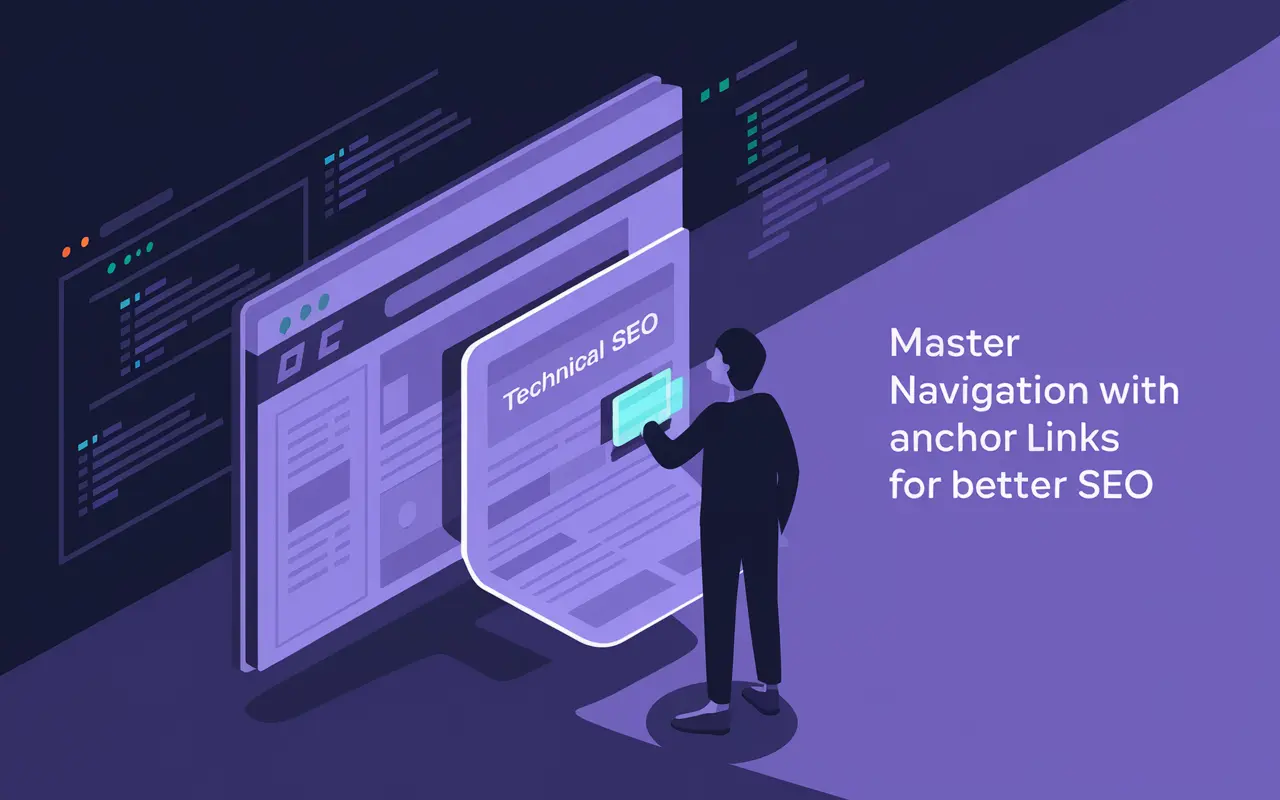Ethical SEO Firm: Why Ethical SEO Practices Matter for Long-Term Success
When it comes to SEO, you might have probably heard the term “ethical” quite a bit. So you might be thinking:
What is Ethical SEO? In simple terms, ethical SEO are those strategies that align with the guidelines set by search engines like Google, helping your website rank naturally and sustainably.
But what does it actually mean? It’s pretty simple: it’s the honest way of improving your site’s ranking by following search engine guidelines. No tricks, no shortcuts. Just solid strategies that focus on long-term success. Especially those kind of strategies that builds trust and actually delivers value to your audience.
Think of it like taking the high road. Instead of using shady tactics to manipulate search engines, ethical SEO is about:
- creating great content
- building authentic backlinks
- ensuring your website is user-friendly
It definitely takes time, but that’s exactly the beauty of it that makes it last. No quick fixes and no penalties down the line.
Why Ethical SEO Matters in Today’s Digital Landscape?
You might be wondering why should I bother with ethical SEO when there are shortcut tactics out there that promise quick results? Well, in today’s digital world, search engines have become pretty smart. Google, in particular, has evolved to recognize and reward websites that focus on providing a high-quality user experience rather than just trying to “trick” their way into the top search results.
The thing is while black-hat SEO might get you some quick wins, it’s only a matter of time before the search engines catch on. And once they catch you with unethical SEO, you risk seeing your website hit with penalties. This can drastically lower your rankings and ultimately affect your website traffic. And if this happens, it’s going to be a lot harder to recover than if you had just stuck with ethical SEO practices from the start.
But if you see the flip side, ethical SEO also helps build trust with your audience. Transparency, high-quality content and a good user experience are all part of the equation. And all these things go a long way in earning brand authority and customer loyalty. Plus, as algorithms evolve, your ethical SEO practices will always have your back, keeping you ahead of the curve.
Ethical/White-Hat SEO Tactics for Long-Term Growth
Now that you know what ethical SEO is and why it matters, let’s talk about what actually makes an SEO strategy ethical. It all comes down to three core pillars: content, backlinks, and user experience. If you master these, you’re definitely on your way to long-term success.
Content That Ranks and Engages
You’ve probably heard the phrase “content is king.” that’s right! And when it comes to SEO, quality content is the king, queen, and entire kingdom. You need to focus on quality content over the quantity. It’s what drives organic traffic, builds trust, and keeps people coming back for more. But here’s the catch: not all content is good content.
What can be called bad content? Content that is keyword-stuffed, AI-generated fluff, or has duplicate pages.
What would be the good content? Content that is not only original and valuable but is also relevant and genuinely helps your audience.
Search engines love content that answers real questions and provides value. That means your content needs to be:
- Written for humans first and search engines second.
- Covering relevant topics with depth and clarity.
- Using natural keyword placement (not stuffing keywords just to rank).
Think about it this way: Would you rather read a blog packed with forced keywords or one that flows naturally, solves your problem, and keeps you engaged? Have you got what I’m trying to say? That’s exactly why quality content is essential. And that’s the same reason why Google thinks the same way.
Link Building Done Right: Earning Authority, Not Buying It
Backlinks are like votes of confidence from other websites proving that you also have a genuine business here on search engines. The more high-quality links pointing to your site, the more trustworthy Google thinks you are. But a lot of SEO agencies go wrong with this strategy. They buy backlinks or use shady link schemes.
Why is this bad? It’s because Google considers this purchase unethical and penalizes those websites that use spammy link-building tactics.
Therefore, instead of purchasing links ethical SEO focuses on earning links naturally by:
- Creating share-worthy content that people want to link to.
- Guest posting on reputable websites (not link farms!).
- Building real relationships with industry influencers and bloggers.
With all of these things, what’s the bottom line? Well, if a link-building tactic feels shady, it probably is. And you really need to avoid those tricks that might potentially harm you in future. Focus on quality over quantity, and Google will reward you in the long run.
Optimized User Experience
Google isn’t just ranking websites based on keywords and backlinks anymore. With its priority on its platform users, it also cares about how users experience your site. Think about it like this: if someone clicks on your page and it takes forever to load, they aren’t gonna wait and they’ll be bouncing in seconds. And that’s what tells Google, “Hey, this site isn’t working great,” and you’ll drop in rankings.
So, what you really need to work on to create a great user experience (UX) in SEO are:
- Fast load times (aim for under 3 seconds).
- Mobile-friendliness (Google prioritizes mobile-first indexing!).
- Easy navigation (No one likes a cluttered website).
- Clear calls-to-action (CTAs) so visitors know what to do next.
A well-optimized website isn’t just good for SEO but also keeps your visitors happy by making their journey smooth. And your site’s Speed, Accessibility, and Responsiveness will keep them coming back. It’s gonna be a win-win for you!
Why Unethical SEO Shortcuts Aren’t Worth It?
We get it very clear that ranking on Google can feel like a never-ending race. And when you see competitors skyrocketing overnight it’s really tempting to wonder: Should I just take a shortcut?
But let me give you a spoiler alert: No, you shouldn’t.
Unethical SEO (aka black-hat SEO) might seem like an easy way to climb the rankings. But trust us, it’s just like a ticking time bomb. Google is getting smarter by the day and when it catches you, the reputation-damaging consequences will be quite hard to recover from.
Let’s break down some of the biggest dangers of unethical SEO and why it’s simply not worth the risk.
Google Penalties: The Fastest Way to Lose Your Rankings
Google is constantly updating its algorithms to identify and penalize black-hat SEO tactics. Think of Google as a strict referee. Play fair and you’ll be rewarded. But what happens when you cheat? You get penalized! And what does that mean for websites that rely on unethical strategies? A one-way ticket to penalty land.
Google’s penalties come in different forms:
- Manual Actions – If a Google reviewer finds manipulative tactics on your site, they can manually remove it from search results.
- Algorithmic Drops – Updates like Google’s Panda, Penguin, and Helpful Content updates target spammy practices, dropping your rankings overnight.
- Deindexing – In extreme cases, your site can be completely removed from Google’s index, meaning no one can find it.
Some of the biggest offenders that can lead to penalties include:
- Keyword Stuffing – Repeating keywords unnaturally just to rank.
- Buying Backlinks – Getting links from spammy or irrelevant sites.
- Cloaking – Showing Google different content than what users see.
- Hidden Text & Links – Sneaky tricks designed to manipulate rankings.
Once your site is penalized recovering it can take months or even years. And during that time, your competitors will be leaving you in the dust.
Damage to Your Brand Reputation
SEO isn’t just about rankings, it’s also about trust for your brand. And once that trust is broken, it’s hard to rebuild.
Think about it if your customers land on your site and find spammy links, misleading content, or pages stuffed with keywords, what do you think they’ll do?
They’ll definitely lose trust in your brand and leave immediately.
Unethical SEO gives the impression that your business values shortcuts over credibility. It signals to customers (and search engines) that you’re not a reliable and authoritative source for a product or information. And in today’s world where consumers do their research before making a purchase, a bad reputation can destroy your online presence.
That’s where ethical SEO helps you build long-term credibility. When you create genuine, valuable content and use white-hat strategies, your brand becomes an industry leader people trust — which translates into more traffic and higher conversions. And this will ultimately lead you towards long-term success.
Poor User Experience = Lower Conversions
Even if black-hat tactics somehow get you traffic, what happens when visitors land on your site?
Even if unethical SEO tactics somehow manage to drive traffic to your website, there’s another problem: if the experience is bad, visitors won’t stick around.
Unethical SEO leads to a poor user experience because:
- Low-Quality Content: Spammy, AI-generated or duplicate content offers no value, making users bounce.
- Slow Website Speed: Google prioritizes fast, mobile-friendly sites. A cluttered, unoptimized site drives users away.
- Confusing Navigation: If visitors can’t find what they need, they won’t waste time trying.
- Misleading Clickbait: If your page title promises one thing but delivers another, users will never trust your site again.
Google’s algorithms reward user-friendly websites, which means user experience (UX) is now a ranking factor. A site that:
- loads quickly
- is easy to navigate
- offers valuable content
will always outperform one that tries to cheat the system.
At the end of the day, SEO isn’t just about gaining a lot of traffic, it’s about turning visitors into loyal customers. If your SEO strategy doesn’t prioritize real value for users then it’s bound to fail.
So the next time you’re tempted by an SEO “hack” that promises instant rankings, ask yourself: Is it worth risking everything I’ve built?
The best SEO strategy is simple: Play by the rules, focus on real value, and watch your website grow the right way.
Ethical SEO Best Practices: Winning the Right Way
If unethical SEO is all about shortcuts, shady tricks and deception, ethical SEO is about playing the long game. It’s about building a strong and trustworthy online presence that Google and its users love. It might take longer to see results but when done right ethical SEO can help you drive consistent traffic, better conversions and long-term success.
So, how exactly do you practice SEO the ethical way? Some of the key principles that make up a solid ethical SEO strategy are:
High-Quality + Valuable Content
Google’s entire purpose is to serve users with the best possible content. That means if you want to rank on the SERPS, you need to focus on creating content that genuinely helps your audience. You can create your content valuable by:
- Originality: No copy-pasting or AI spam as Google favors unique as well as well-researched content.
- Depth & Relevance: Answer real questions, solve problems, and provide useful insights.
- Readability: Use shorter sentences, subheadings and bullet points to make it scannable.
- Regular Updates: Keep your content fresh and up to date with the latest information.
If your content solves real problems then people will engage, share, and trust your brand. And this in turn will boost your rankings.
White-Hat Link Building
Backlinks are one of the most important ranking factors, but there’s a right way and a wrong way to get them.
Ethical link-building means you’re earning links naturally rather than buying them or using any kind of spammy tactics. You can do this:
- Create Share-Worthy Content: Blogs, infographics, and research reports naturally attract links.
- Guest Blogging: Write high-quality guest posts on reputable industry sites.
- Build Relationships: Network with industry influencers and website owners to get natural mentions.
- Avoid Spammy Links: Stay away from paid links or link farms and also avoid irrelevant directories.
Google prioritizes quality over quantity when it comes to backlinks. So your one link from a trusted, authoritative source will be worth more than hundreds of spammy links.
Transparent & User-Friendly On-Page SEO
Optimizing your website for SEO doesn’t mean stuffing it with keywords or using sneaky tricks. Instead, what you need to focus upon is: helping users find what they need quickly and easily.
Here’s what ethical on-page SEO looks like:
- Naturally Placed Keywords: Use keywords where they make sense — no overstuffing.
- Clear, Engaging Meta Descriptions: Summarize your content in a way that entices users to click.
- Fast, Mobile-Friendly Website: Google rewards sites that load quickly and work well on mobile.
- Logical Site Structure: Make your site navigation simple and intuitive so users don’t get lost in your web pages.
When your website is easy to use and delivers value, both search engines and visitors will love it.
How to Choose an Ethical SEO Firm & What to Look For?
Not all SEO agencies are created equal. Some promise instant rankings (definitely a red flag!), while others use black-hat tactics that can ruin your site’s reputation.
So, how do you find an SEO firm that plays by the rules and actually delivers results?
It’s simple. You need to look for a few things when choosing an ethical SEO firm.
Transparency & Clear Communication
A good SEO agency will always be honest and upfront about its strategies. When choosing one, you need to watch out for firms that:
- Make unrealistic promises
- Refuse to explain their methods
- Don’t provide detailed reports
Instead, you must choose an agency that provides regular updates with clear explanations of the updates and progress along with data-driven strategies to keep you in the loop.
Focus on Long-Term Growth, Not Quick Wins
SEO is a long-term game that demands time and patience. Any agency that offers overnight results is more likely to be cutting corners. Ethical SEO firms focus on:
- Sustainable rankings by using proven, white-hat techniques that stand the test of time.
- Prioritizing value for your audience and not just search engines.
- Continuous improvement as SEO isn’t a one-time job. So they should constantly refine and optimize.
If an agency prioritizes quick tricks over lasting results, you really need to walk away and find a new one.
Proven Track Record & Positive Reviews
Would you trust a doctor with no reviews and no experience? Probably not. The same kind of logic applies to SEO firms. That’s why before hiring an agency, you need to check for:
- Case studies – Have they helped businesses grow their rankings?
- Client testimonials – Do past clients vouch for their ethical approach?
- Industry reputation – Are they recognized as a trusted SEO provider?
A reputable SEO firm will have real success stories and happy clients to prove their worth. They would never hide or hold any information. So if you find any agency hesitant in sharing their past experience and achievements, watch out for scams!
Final Thoughts: Choose Ethics, Choose Long-Term Success
SEO isn’t something that is tricking the search engine’s system. It’s about building a strong online presence that lasts and helps you deliver long-term results. Unethical SEO may seem tempting at first but its risks far outweigh the rewards.
When it comes to SEO, playing fair isn’t just the right thing to do. It’s the smartest strategy you can follow for long-term success. By choosing ethical SEO practices and working with the right agency, you’re investing in sustainable growth with better rankings and a trustworthy brand.
Ready to grow your online presence the right way? Partner with DigiDream, an ethical SEO firm that prioritizes transparency, long-term success, and real results. Let’s boost your rankings without the risks. Get a free consultation today!








